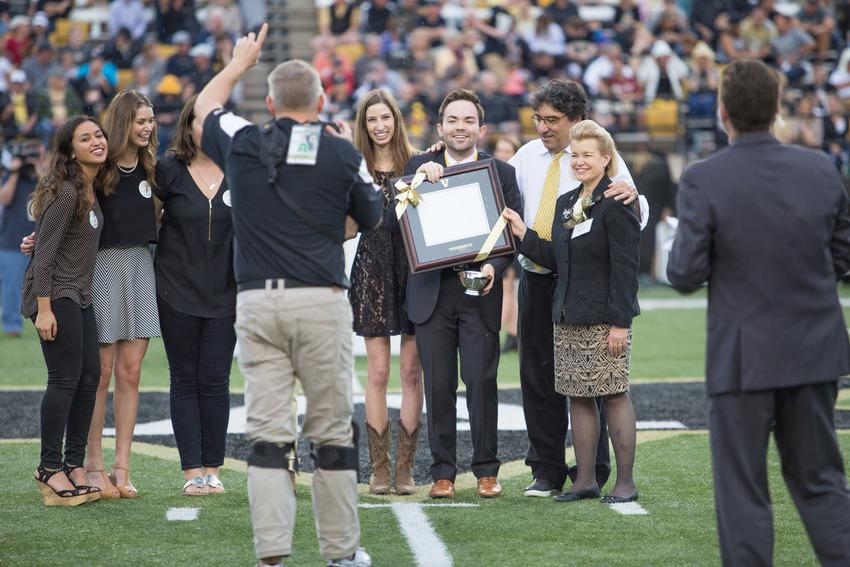On Saturday, at the Homecoming football game, the Outstanding Senior of the Class of 2017 will be announced. But what goes into selecting the final winner? Vanderbilt Programming Board Homecoming Co-Chair Chukwukpee Nzegwu explains the process from beginning to end and provides some insight into his opinions on the selection methods.
At the start of the school year, the Vanderbilt Programming Board Homecoming Committee sends emails to the entire campus body and posts on social media asking for nominations for outstanding seniors. The only requirement to be nominated is a 3.0 GPA. This year, around 100 students were nominated for Outstanding Senior.
Then, the board emails the students who were nominated and asks them if they would like to proceed with the process. If the students are interested, they fill out an application, which asks about their general Vanderbilt experience and if there is anything that the judges should know about them. Around 80 percent of nominated students filled out the application.
After all of the applications are in, the two VPB homecoming chairs and the Outstanding Senior Subcommittee narrow it down to 40 seniors to present to the faculty judges.

The judging committee is responsible for narrowing the pool down to twenty semi-finalists for the award. The judges are faculty from various parts of campus who agree to donate their time to help decide on the top 20. This year, there were three faculty judges, but Nzegwu is unable to reveal their names. In order to get the top 20, the judges interview each candidate and score each one on a variety of categories.
Once the top 20 is revealed, each member of the student body has the opportunity to vote for their three favorite semifinalists. These votes yield the top 10, and the highest-scoring finalist becomes the Outstanding Senior. While the top 10 is announced in advance, the Outstanding Senior is not announced until halftime of the Homecoming football game.
The winner is withheld in order to build up energy for the game, when it will be revealed. The top ten are announced in advance of the game, however, so that these students can ask their families to attend the game and the Outstanding Seniors brunch for the top 10 finalists.
When the winner is announced, there is always some pushback from various students.
“The biggest challenge is that there are people who aren’t happy,” Nzegwu said. “There are going to be feelings that are hurt. If you’re already my friend, this won’t change things too much, but it has to be taken care of delicately. You can accept some feedback and talk to people without making them feel not in the dark, without making them feel insecure.”
While there is some pushback, Nzegwu finds the process to be rewarding.
“The most rewarding part is to learn about so many students I didn’t even know about,” he said. “I know a lot of people, and I’m still shocked at some of the obligations and impacts of the top twenty.”
Nzegwu also believes that the selection process is fair, and he wouldn’t make any changes to it.
“It’s not meant to be the most merit-based, critically-acclaimed type of process,” he said. “If we wanted to do something like that, it wouldn’t be during homecoming.”
However, Nzegwu believes that if Vanderbilt students had more established traditions, Outstanding Senior may not be necessary.
“We don’t have any other traditions, and if we had them, maybe we wouldn’t need this,” he said. “Seniors don’t take like a dip in the lake or something like that or rub a special statue. If we could start forming those traditions, even something as simple as the day before graduation, all the seniors go into the stadium in their pajamas, it would mean a lot.”
Nzegwu also wrote an opinion piece on the Outstanding Senior process, which can be found here.

